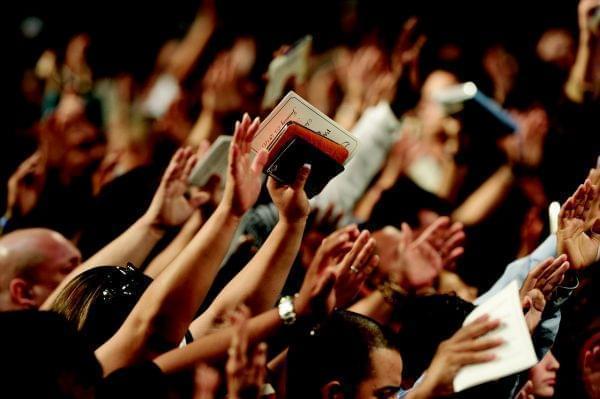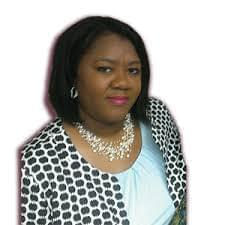How The Faith Community Can Help Families Affected By Mental Illness

Pixabay/jaefrench (CC0)
A pastor in Rantoul wants to raise awareness about the issues people face living with mental illness and equip the faith community to help.

Regina Crider is the director of the Youth and Family Peer Support Alliance and a pastor at Crossroad of Life Community Church.
Regina Crider is the director of the Youth and Family Peer Support Alliance and a pastor at Crossroad of Life Community Church.
Crider spoke with Illinois Public Media about an event she’s hosting this Saturday to discuss the role of faith communities in supporting families affected by mental illness.
The Mental Health and Faith Prayer Brunch will take place at 10 am on April 27, 2019, at the Linden Banquet Center in Rantoul.
The event is free and open to the public; Reservations are required.
This interview has been edited for length and clarity.
What is the Mental Health and Faith Prayer Brunch all about?
The event kicks off Children’s Mental Health Awareness month. I think the faith community has a unique position to be able to help with the challenges, struggles that the community at large has to deal with at large with mental health, but as far as families. People typically will go to their church or their faith as a resource. And so I want to raise the awareness within the faith community, I want to raise the awareness within the community at large about how the faith community can come in and be a support to families.
Is there a history of the church being a place where you could talk about mental health issues, or do you feel there’s a lot of room for growth?
There's a lot of room for growth. When my daughter had her first episode, I remember standing in the pulpit that Sunday morning, looking out into the congregation and saying, "I know that my family is not the only family that is going through this." And why did it take for it to happen to us for me to come to that conclusion?
It's very disheartening as a pastor and a parent to see families stop coming to church... because their families can't be embraced or aren't being embraced or loved or supported."Pastor Regina Crider
From that point on, it has been something that I have explored, I have read about, I have prayed about, because I want to see families get help, but the church, the faith community can't help if we don't know what to do, or how to do it.
So I feel like there's so much more room for growth. It's very disheartening as a pastor and a parent to see families stop coming to church, which I've seen this happen, because their families can't be embraced or aren't being embraced or loved or supported because folks in the church don't understand mental health and how it impacts their family. And then how it begins to manifest itself within the church, and it makes people feel uncomfortable.
Our role as the body of Christ is to be a support to families, to show unconditional love, to pour out mercy and grace. And if people can't get that in the church, then we should have no business being in the church.
How can we begin to embrace this community of people who need that support and love?"Pastor Regina Crider
Once you had this personal experience with having a child who has a mental health condition, how did it change the way that you approach this issue as a pastor?
I began to look for it. I began to talk more about it from my pulpit. When I counsel with family members, I listen for the signs, I look for the signs, I listen for telltale signs of mental health, but families may not have the mental health lingo or terminology to use it.
So I started to be more proactive at looking for the signs of it. And then being able to begin to have a dialogue. And then for those who are interested, connecting them with the resources. So it was really about training myself to be more present in listening and looking for the signs of mental health in families.
Who are you hoping will attend the event this Saturday -- members of the church, church leaders?
It's for church leaders, lay leaders, it's open to the public at large who are just interested in it, it's no one particular person. But I really want the faith community as a whole to come and participate, just to hear more about what can we do differently.
How can our Sundays start looking different, how can our Wednesday nights look different? Any events or activities that we put on, how can we begin to embrace this community of people who need that support and love? And so, it's open to anyone who has an interest in changing the face of the local church.
Follow Christine on Twitter: @CTHerman
Links
- Why Getting Mental Health Care Can Be A Struggle For Refugees
- Measure Aims To Help Justice-Involved Children Access Mental Health Services
- Exploring The Link Between Racism, Trauma and Mental Health
- Autism And Mental Health Issues Make Finding Care A Challenge
- When Insurers Deny Mental Health Coverage, Families In Crisis Struggle Even More
- As Suicide Rates Rise, Mental Health Support Group Seeks To Combat Stigma
- Court-Appointed Expert Will Oversee Illinois’ Efforts To Build Children’s Mental Health Services
- U.S. County Jails Step Up Mental Health Screening To Keep Inmates From Coming Back
- ‘Youth Mental Health First Aid’ Teaches How To Help In A Crisis Situation

